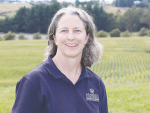The Bragato Research Institute has joined a research initiative studying the global market potential of regenerative agriculture.
The project was launched earlier this year by Beef + Lamb New Zealand (B+LNZ) and recently broadened its outlook to the wine sector.
“This research will provide the sheep, beef and wine sectors, as well as the wider food and fibres sectors, their first large-scale, evidence-based picture of the potential market upsides – or downsides – of regenerative agriculture,” says B+LNZ Chief Executive Sam McIvor, talking of a “massive global surge” in interest about regenerative agriculture in recent years.
There are diverse views around what regenerative agriculture means, and it is “critical” industries understand what consumers think and how influential players are acting, he says.
“Understanding these factors helps us to better understand potential demand, and whether there are opportunities for New Zealand to leverage it. We want to get ahead of any opportunities so farmers, and now winegrowers too, can be best placed to take advantage of them.”
Michelle Barry from the Bragato Research Institute says findings from the research could guide future vineyard management practices “and evolve brand messaging across the wine industry”. Michelle says it will be interesting to see what level of understanding exists in the marketplace when it comes to regenerative agriculture, and to learn more about consumers’ expectations.
MPI’s Sustainable Food & Fibre Futures fund is the main source of funding for the project.
“Regenerative agriculture is receiving a lot of attention lately,” says MPI’s Director Investment Programmes Steve Penno.
“This research will provide valuable insights into what consumers think regenerative agriculture is, and whether they’re willing to pay a premium for products that are produced using regenerative practices.”
Research will focus on consumers, industry and experts in key red meat and wine export markets - the US, UK and Germany.
It will also explore local attitudes toward regenerative agriculture among farmers, processors, winegrowers and others, to understand their views on its potential, and how it could be incorporated within the existing value chain.
Results are expected in early 2021 and will be shared across the red meat and wine sectors.












